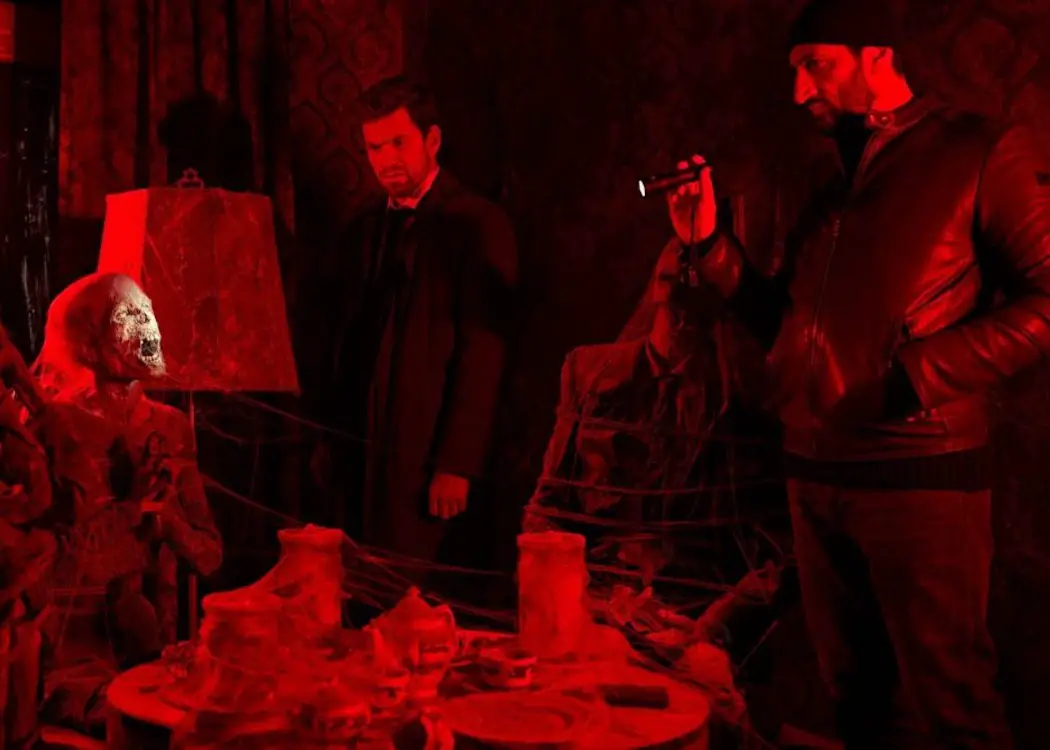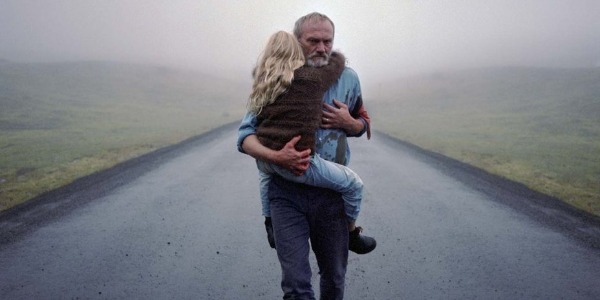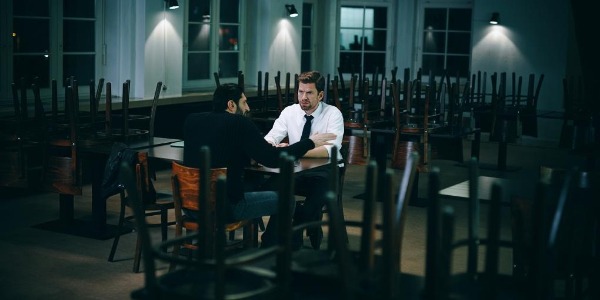The Volvo Scandinavian Film Festival 2019 Report: What Makes A Man Cry?

Alex is a 28 year-old West Australian who has a…
The Volvo Scandinavian Film Festival is a national film festival presented by Palace Cinemas in Australia, showcasing the best in contemporary cinema from Sweden, Denmark, Norway, Finland and Iceland. This year showcased retrospective on the hit Nordic Noir series Department Q and the Millennium Trilogy (and the latest Stieg Larsson documentary), alongside a company of Australian premieres such as A White, White Day, Out Stealing Horses, Aniara and Sons of Denmark, which all represent the fascinating new directions that the Scandinavian film industry is currently emerging with.
I had the pleasure of catching two of the more high-profile premieres; A White, White Day and Purity of Vengeance, a pair of hard-hitting dramas that both attempt to ask the same, basic question: What does it take to make a man cry?
A White White Day (Hlynur Palmason)

It begins in silence; a Kubrickian tracking shot chases a car as it glides across the narrow country road, situated high in the mountains and shrouded in misty, white fog. It’s almost ethereal, hypnotic in its eerie tranquility, until the car barrels through the guard rail and right off the mountains – life can change in an instant, but driven by the Malick influence that runs between two of the festival’s films, nature carries on, despite the human drama the unfolds within it. A White, White Day, Hlynur Palmason’s bold follow-up to his striking debut Winter Brothers, demonstrates a keen awareness of genre film tropes, taking an ordinary tale of vengeance and choking any sense of pulp or melodrama out of its veins, leaving only the psychological journey of one man trying to make sense of a world that offers no answers.
But one answer that local police chief Ingimundur (Ingvar Eggert Sigurdsson) may be able to secure is what exactly happened to his late wife, the victim of the tragic car accident. Similar to Winter Brothers, Palmason prefers to tell his story through a patchwork of images rather than a basic narrative, these intentions are supported by its brutally slow post-crash montage, which locks the camera in a Haneke-like distance from Ingimundur’s half-renovated farm house, and slowly clicks through a series of seasons as the isolated abode is slowly assembled. It’s methodical, but immediately informs the audience of the tactile, labour-driven mind-set that has allowed the grieving police chief to seemingly work through his pain, which when we finally meet him, has seemingly not worked.
Spending a healthy amount of time with his adorable granddaughter, his rigid emotional masking is slowly stripped away when he starts to suspect that his late wife was engaging in an extended affair with his younger colleague. In defiance of the Scandinavian, snow-drenched tale of revenge thriller In Order of Disappearance (that was remade this year as the Liam Neeson bomb Cold Pursuit), A White, White Day is more interested in the boil than the burst. Whilst it does detail Ingimundur’s grief being exorcised via unchecked vigilantism, his pursuit for catharsis is more involved with the confrontation of one’s self, as opposed to the confrontation with a typical ‘villain’. It’s a tough experience, for both the audience watching and the characters within, but Palmason’s rugged deconstruction of traditional male masculinity is a struggle worth sitting through.
The Purity of Vengeance (Christoffer Boe)

As we learned from A White, White Day, It can take a lot to make a tough man cry, but it’s going to take one hell of an ordeal to crack Detective Carl Mørck, the Sherlock Holmes figure in the centre of the Scandinavian blockbuster Department Q franchise. Based on the Jussi Adler-Olsen’s book series, the Department Q films follow the titular cold case unit, whose basement offices are occupied by the forever furrowed Carl Mørck (played perfectly by Nikolaj Lie Kaas), his ever-suffering partner Assad (the equally terrific Fares Fares) and the glue that keeps them together, Rose (Johanne Louise Schmidt). It sounds like typical Nordic Noir fare on paper, with each instalment tackling another form of historical injustice with Fincher-like flavour, but don’t underestimate their magnetic appeal; this fourth chapter (and most likely its last) is already the highest grossing Danish film ever, and past films have netted Fares Fares the Danish equivalent of an acting Oscar.
Coming off it’s most cinematic instalment (helmed by recurrently referenced director Hans Petter Moland), Christoffer Boe shrinks the series back down to “extended television episode” ambitions and aesthetics, despite the amount of blockbuster tropes it hurls at its central crime-solving trio. It virtually touches upon every cop cliche; Assad has a week before boarding a new promotion, with Carl hiding his hurt behind a wall of pragmatic sulking. A grim discovery within an abandoned apartment has the bickering duo delving into the tragic abuse that occurred on the abandoned island of Sprogo, which housed a shuttered institution for “troubled girls”, essentially a prison for families to shut off their young daughters for whatever reason, whether it genuine mental health issues or being caught sleeping with your cousin, whose appalling experiences under the thumb of the leading doctor Dr. Wad (Elliott Crosset Hove) unfolds in the past alongside its present-day deduction.
Despite being filtered through a smoke-filled, gloomy atmosphere of discomforting dread, it’s fascinating how much of it plays like a Hollywood cop potboiler – you can already imagine the key cast of Safe House (Denzel Washington and Ryan Reynolds), slipping into the roles originated by Nikolaj Lie Kaas and Fares Fares in 2013, without much adjustment needed. Yet like all formulas, it works, even though it tackles some rather weighty issues within its pursuit for unfinished redemption; topics of unplanned abortions, genetic cleansing, forced sterilisation and the systemic oppression of women via medical care is weaved throughout car explosions, brutal fist-fights and an entire season of Mad Men’s worth of cigarette smoking. It seems that rights issues are preventing further production, but one can only hope that its tremendous success propels things in a different direction, because like any great TV series, I could honestly watch fifty more of these – bring on Department Q the Fifth!
What are your thoughts on the films mentioned? Let us know in the comments below!
Find out more about the Volvo Scandinavian Film Festival here.
Does content like this matter to you?
Become a Member and support film journalism. Unlock access to all of Film Inquiry`s great articles. Join a community of like-minded readers who are passionate about cinema - get access to our private members Network, give back to independent filmmakers, and more.












